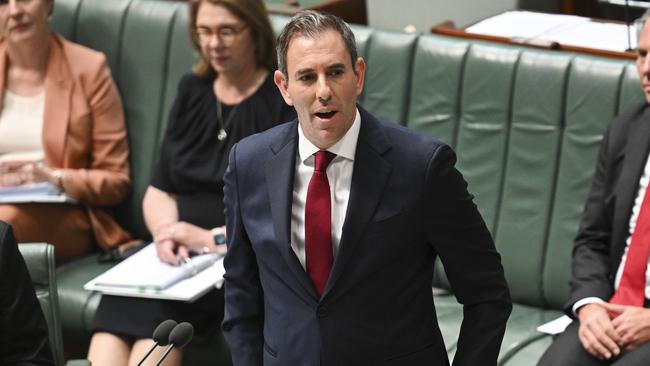‘Sitting ducks’: the super tax bureaucrat backlash takes off
Public servants with defined-benefit pensions say they are ‘sitting ducks’, so now they are joining forces to push against plans to include them in new taxes on super.

An unlikely coalition of public servants is making a last-ditch attempt to avoid being caught in the government’s new super tax for high earners.
Government bureaucrats on defined-benefit pensions want nothing to do with the plan to introduce a 30 per cent tax on super earnings for balances above $3m and are pushing back hard on government plans.
The ACPSRO – Australian Council of Public Sector Retiree Organisations – representing around 700,000 public servants says they should not come under the new tax because they will not be able to avoid it, while most retirees with pensions at risk on the market can move money out of super if they wish.
‘We are sitting ducks here, we do not have the options to move money around – we are being treated as if defined benefits were some sort of gift, but we want to make it clear that we are taxpayers, and we never got the tax concessions of others in the system,’ says John Pauley, president of the ACPSRO.
Meanwhile, judges are claiming that the legal system itself could wobble if they don’t get exemptions. In a submission to a Senate committee, the Australian Judicial Officers Association suggests that the implications of a reduction in judicial pensions could ‘erode the perceived independence of the judiciary.’
Under current arrangements, judges receive a hefty 60 per cent of their former salary once they retire. The judges say they have ‘profound concerns’ about the new tax.
Defined Benefits schemes were dropped in 2004 but anyone lucky enough to be entitled to such pension arrangements gets a set payment due every year regardless of the fortunes of investment markets – in other words a stock market crash would mean little difference to their income which is not ‘at risk’.
The tax requirements on DB payments are complex. However, many former public servants are on capped DB incomes which are tax-free up to $118,750 per annum.
Senior members of the public service, politicians even senior executives at government corporations such as the ABC, can be entitled to DB pensions for life based on their former salary level,
At the heart of the upsurge in advocacy for government-funded retirees, is Treasury’s confirmation of a formula to capture DB members in the new tax. Most calculations on the value of a DB pension will now be based on existing calculations used in family law when DB pensions are included in divorce settlements.
Treasurer Jim Chalmers will be hoping the move to copy family law calculations achieves a so-called ‘commensurate’ treatment between high earning public servants on DB pensions and wealthy retirees in conventional account-based super, including those in Self Managed Super Funds.
While most arguments against the tax to date have been economically rational – the bulk of the protests from tax professionals concern the taxing of unrealised gains and the absence of indexation – the DB pension cohort has taken a completely different tack.
They say: “The stated purpose of the government’s measure is to ensure the better targeting of superannuation tax concessions. (But) DB pensions are not in receipt of the several concessions that apply to funds accumulated under the Superannuation Guarantee Arrangements, and therefore should not be included within the ambit of the proposed legislation.”
The legislation to introduce the 30 per cent high-end super tax is still before parliament.
A number of the Teal group of independents – including Kylea Tink, Zoe Daniel and Allegra Spender – have expressed concerns about aspects of the legislation, particularly the plan to tax unrealised gains in super.






To join the conversation, please log in. Don't have an account? Register
Join the conversation, you are commenting as Logout